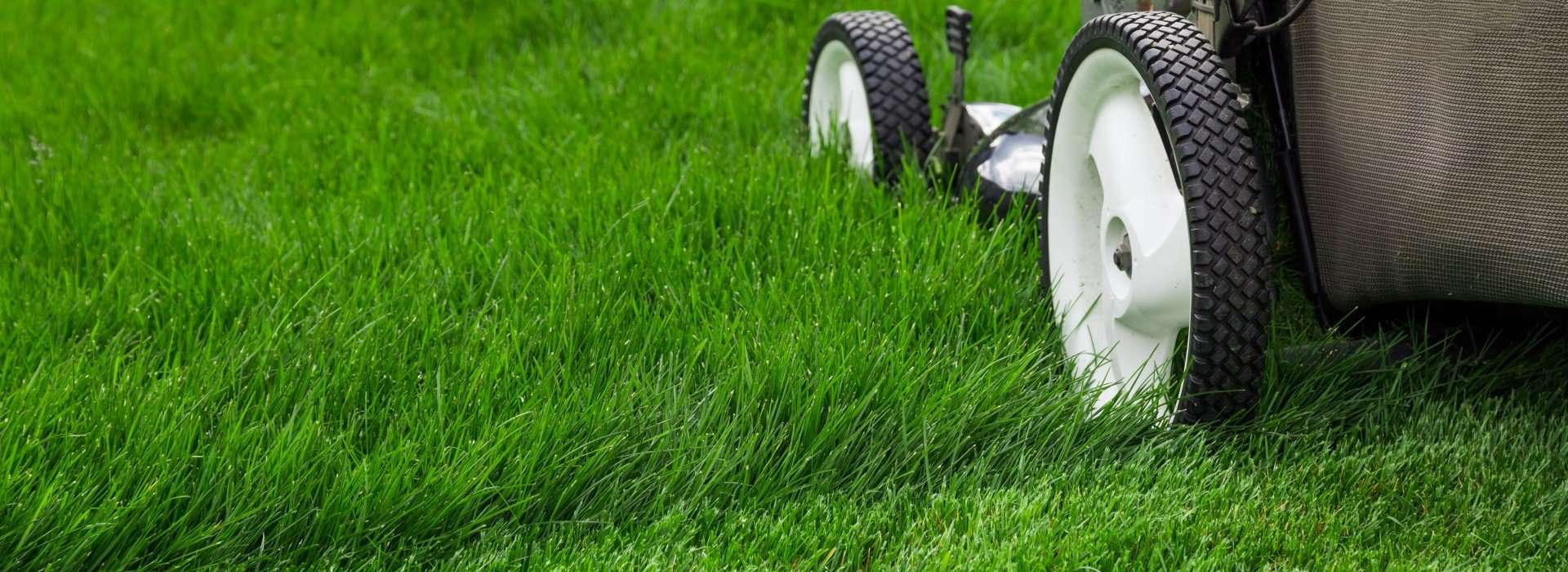Watering
If your variety of grass is water dependent, water your lawn during the summer months up to three times each week and try to water in the early morning. Ensure your lawn is watered deeply to discourage shallow root growth and avoid pooling water as this can heat up and burn your grass.
There is such a thing as too much water on an established lawn and we recommend letting your lawn dry out a bit as the temperature warms. A few weeks of dry weather will not harm your grass. Only start watering once the dry weather really sets in and water regularly to ensure the ground will take the water in well. Allow your grass to dry out again at the end of summer as the weather cools and cease all further watering until the next summer.
Wetting Agent
Wetting agents are a granular or liquid product that you apply to your lawn at the start of summer. Wetting agents enhance the efficiency of watering by improving water penetration and helping hold the water and fertilisers where they are required. They can reduce the frequency of watering required and help prevent dry patch from occurring.
Fertilising
Apply a quality, high nitrogen, slow-release lawn fertiliser at regular intervals to keep your lawn healthy and green. We recommend applying fertiliser four times each year, in March, June, September and December. This avoids applying during summer and winter when fertilisers are not as effective. It also takes advantage of the months when the most growth occurs to get the full benefit from the fertiliser. If you wait until your lawn looks unwell before fertilising it will need a higher application rate to pick it back up. Fertilisers with a 20+ Nitrogen rate give the best results and we recommend using a fertiliser spreader to ensure an even application.
During the cooler, wetter months you may need to change the fertiliser you use to one that is more suited to these conditions. Visit our online store for the best fertilisers to use.
Weed Spraying
You can never keep a lawn completely weed free and weeds need to be present for the weed spray to be effective. For regular maintenance, spray your lawn for broadleaf weeds twice each year. Most broadleaf weeds will appear during the warmer months so spray your lawn late spring or early summer and again at the end of summer or early autumn. Sometimes a follow up application may be required to effectively kill hardy weeds and occasionally more spray applications are required to keep a lawn clean. Ensure the weed spray you use is grass friendly. This means it will selectively target the weeds and not harm your grass. Grass weeds need to be treated with a different product. See our lawn advise page for more information.
Lawn Repairs
Repairing bare or worn patches in your lawn is important as it will help keep unwanted weeds and grasses out. Complete lawn repairs with grass seed during autumn or spring. These are the best times to grow seed and we recommend mixing the seed with Daltons Premium Lawn Soil. Lawn Soil is a blend of natural materials designed to support seed germination and growth. For smaller bare areas premix the seed and soil in a bucket or wheelbarrow before dropping onto the patch and compacting with your foot. For larger areas, cultivate the existing soil, broadcast the seed and then apply the Lawn Soil over the top before compacting.
You can also patch bare areas at any time of year with Instant Lawn. Square up your bare patch and cut the instant lawn to fit.
Lawn Dethatching
Thatch is a layer of living and dead plant material that can build up between the plant leaf and the soil surface of your lawn. Excessive amounts of thatch can cause damage by harbouring disease and insects and promoting poor drainage and weed growth, resulting in an unattractive lawn. Dethatching is the process of removing the thatch and should be carried out regularly, preferably during the autumn. After dethatching we recommend applying fertiliser and over sowing with grass seed if needed. We have machines to dethatch any size lawn. Your lawn won’t look that great for a couple of weeks after a good dethatching but the bigger the mess the better your lawn will look when it has recovered.
Lawn Coring
When a lawn is struggling to perform at its best it can often benefit from coring. Like dethatching, coring will also remove thatch as well as aerate the soil. Our coring machines have a series of hollow tynes that remove plugs of soil from the ground. This process helps to relieve soil compaction and improves the flow of air, water and fertiliser nutrients through the soil and root zone. After coring, the core holes can be left open or be filled with fresh topsoil and/or fertiliser.
Lawnmower Maintenance
Regular mowing is crucial to maintain a healthy lawn so looking after your lawnmower is equally as important. Keeping blades sharp ensures a clean cut as opposed to blunt blades that rip the grass. Lawns grow less in winter so it is a good time to service your lawnmower.


